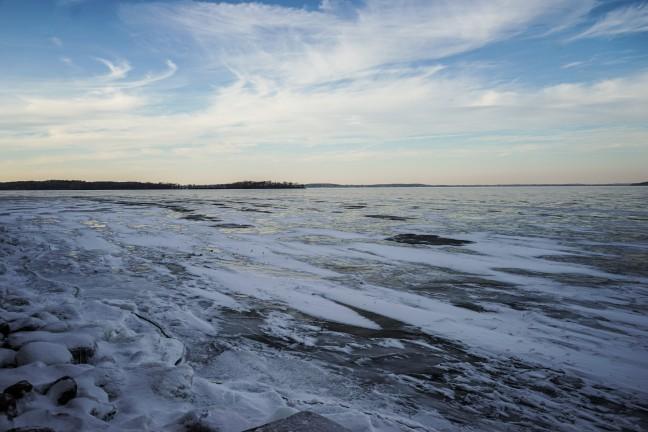This Black Friday, the busiest retail day of the year, REI closed its doors, urging everyone to forgo the deals and stress that accompanies the consumerist holiday, and simply #OptOutside.
REI’s message and goal is a clear one. Instead of buying more stuff we don’t need, feeding the machine of unethical consumption, we should all just go outside and value the wild places that surround us.
At a glance, this may seem insignificant, or just a PR stunt to boost the company’s image. However, this idea of harnessing the day after Thanksgiving as a way to reduce all our carbon footprints is vital in a broader movement of environmental protection.
It’s easy to get caught up in the hectic high that is Black Friday shopping, with clothing brands offering absurd deals, attempting to net you into buying far more than you’d ever need. However, on the flip-side of this instantaneous satisfaction that’s bound to only last one or two washing cycles lies the polluted and detrimental side of production. According to the World Resource Institute, producing one cotton shirt takes as much water as the average adult drinks in two years — 2,700 liters.
As these liters accumulate, the seas dry up. Accessible, drinkable water is one of the most scarce resources in the world. Even throughout the U.S., we are noticing high levels of cotton production in areas with considerable amounts of “water stress.”
Dane County hires first director of new Office of Energy and Climate Change
Along with sheer water consumption, chemical runoff pollutes rivers and lakes, ruining the ecosystems intrinsically bound to them. Rich and vibrant colors need strong, unnatural chemical dyes in order to pop, and when the producer is finished creating them, the surrounding water ways pay the price.
Furthermore, as the world becomes more and more globalized, bound together by the latest trends of how to look brought to us instantly through technology, we are considerably lowering the life cycle of clothing. Greenpeace estimates that between 1992 and 2002 this cycle has been cut in half.
As trends wax and wane, it’s our planet that suffers the consequences.
However, there is pushback. Companies such as Patagonia, headed by conservationist, and all-time great alpinist, Yvon Chouinard are trying to find a way to give back and help with the fight against the environmentally destructive norms of the industry.
Within their mission statement, these goals are addressed: “Build the best product, cause no unnecessary harm, use business to inspire and implement solutions to the environmental crisis”
In 2016, Patagonia donated their Black Friday earnings, all $10 million of it, directly to environmental protection groups. This year, they’ve adopted a new policy, providing a map of environmental groups in your area to donate directly to, allowing for individuals to effect and create change in their own cities.
For Madison, Patagonia suggested 350 Madison, River Alliance of Wisconsin, The John Muir chapter of the Sierra Club and the Wisconsin Wetland Association, all absolutely phenomenal organizations dedicated to preserving our local environment. All united in their belief in using community members to raise awareness, push policy and organize together to tackle the issues of environmental degradation.
While the Dept. of Natural Resources debates the cause of climate change, natural resources suffer
However, this isn’t nearly enough. Yes, we can laud and cheer and pat our backs for the progress these companies are making, but opting outside once a year isn’t enough, donating to these organizations once a year is simply not enough.
We need continuous awareness of our monetary decisions and we need to push our politicians to be mindful of their environmental footprints. It takes as little time as either donating a few dollars online or calling our representatives.
If we want to save our waterways, and our planet in general, we need to be conscientious of all of our purchases, deciding whether we need them or if we are just infatuated by a sexy, slashed low price tag.
By opting away from these deals, by separating ourselves from the mislead, materialistically motivated version of humanity that we’ve morphed into over the years, we can find a way to save our planet, together.
Adam Ramer ([email protected]) is a junior studying history and politics.














